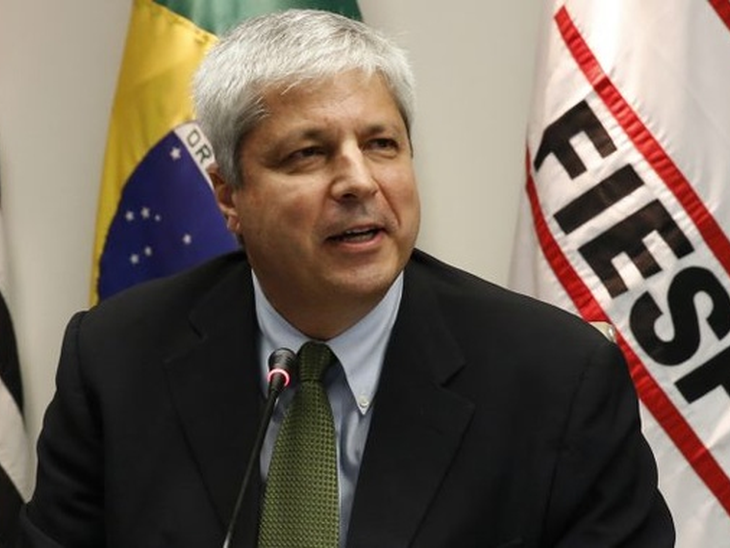
 Biofuels
Biofuels
T&B Petroleum/Press Office Ubrabio

Brazil has diversified raw materials, known technology and logistics to become the world leader in the production and use of biofuels.
This was the common understanding among the speakers who participated in the last debate table of the II Biodiesel Week, promoted by the Brazilian Biodiesel Union (Ubrabio), in partnership with Embrapa Agroenergia and the Energy Research Company (EPE), which for five days discussed the role of biofuels in the sustainable development of Brazil and the world.
During the debates, the comparative advantages that the country has to produce diversified raw materials in a regionalized manner for the production of biofuels, including aviation biokerosene, were analyzed.
One of the speakers at the event, the CEO of EnP Energy, Márcio Felix (photo), defined as "energy syncretism" the future coexistence between the various fuels, as well as the diversification in the supply and use of raw materials for biofuels.
"This syncretism makes it possible to use all our diversity. Brazil needs to include this feature in its equation to better sell our global image of a low carbon economy," said Felix.
He recalled that today Brazil already produces and coexists with various types of flex-fuel engines for vehicles and needs to harmonize these solutions on the supply side of biofuels.
In his lecture, the general director of Embrapa Agroenergia, Alexandre Alonso, highlighted that Brazil already has productivity, technology, diversified raw material and conditions to increase the offer of products of plant origin for the production of biofuels.
"We have consolidated raw materials, such as soy, and other unconsolidated ones, such as macaúba, with gigantic potential for the industry. And we also have residual raw materials, which can, with the proper technology, be used in biodiesel and others biofuels," noted Alonso.
The director of Embrapa Agroenergia, a partner entity of the II Biodiesel Week, added that Brazil needs to increase its productivity by investing in science and technology, in new arable crops, new input production systems.
Commander of Gol Linhas Aéreas and director of Aviation Biofuels at Ubrabio, Pedro Scorza, mentioned in his lecture the studies by IATA that forecast equal costs for the production of aviation fuel in 2037. According to him, the pressure for this to happen will grow quickly.
"Society as a whole will exert pressure and public policies will probably come in which not only the aviation industry, but all other sectors, will have to reduce emissions," predicted Scorza.
The president of Ubrabio, Juan Diego Ferrés, highlighted in his message the strategic importance of Brazil in adopting energy production practices that are globally sustainable, and biofuels are an instrument for this.
"I am very optimistic about the global balance and the resumption of the sustainable trajectory globally, and also about the future of Brazil and biofuels in a broad way that we defend so that they are balanced and sustainable and carbon neutral," he said.
In his participation at the debate table, deputy Arnaldo Jardim (Citizenship --SP) celebrated the need for society's broad adherence to biofuels. But he stressed that the Congress needs to adopt more concrete measures and delve deeper into issues dealing with sustainability. "Brazil needs to present itself as the vanguard of the bioeconomy and the green economy," said Jardim.
The director of the National Civil Aviation Agency (ANAC), Rogério Benevides, also debated the topic. He noted that the aviation sector is an international drive and increasingly needs to analyze the world's environmental requirements for the segment. "The environment is one of the pillars for civil aviation, including the topic of climate change. The decarbonization of the sector is a path with no return," he pointed out.
Moderated by the director of Potencial Biodiesel, Carlos Eduardo Hammerschmidt, the debate on biofuels of the future was attended by the director of the Department of Biofuels at the Ministry of Mines and Energy, Pietro Mendes. According to him, the technical committee created to deal with future biofuels has defined an action schedule that provides for government actions to guide investments in biofuels in Brazil.
The coordinator of the Brazilian Network of Biokerosene and Renewable Hydrocarbons for Aviation, Amanda Gondim, was one of the guests at the event and highlighted Brazil's capacity to adopt a regionalized production of biofuels. "The decentralization of the production of this energy is advantageous for a better use of our raw materials in each location", she concluded.
The superintendent director of Ubrabio, Donizete Tokarski, called on Brazilian society to get involved in the debate on the importance of biofuels.
"Brazil is ready to move faster in the world of Bioeconomy. We have raw materials, technology, qualified personnel, but public policies increasingly need to be in tune with social, economic and environmental sustainability," said Tokarski. The entity's director invited everyone to the next biodiesel week in August of next year.

Contact us